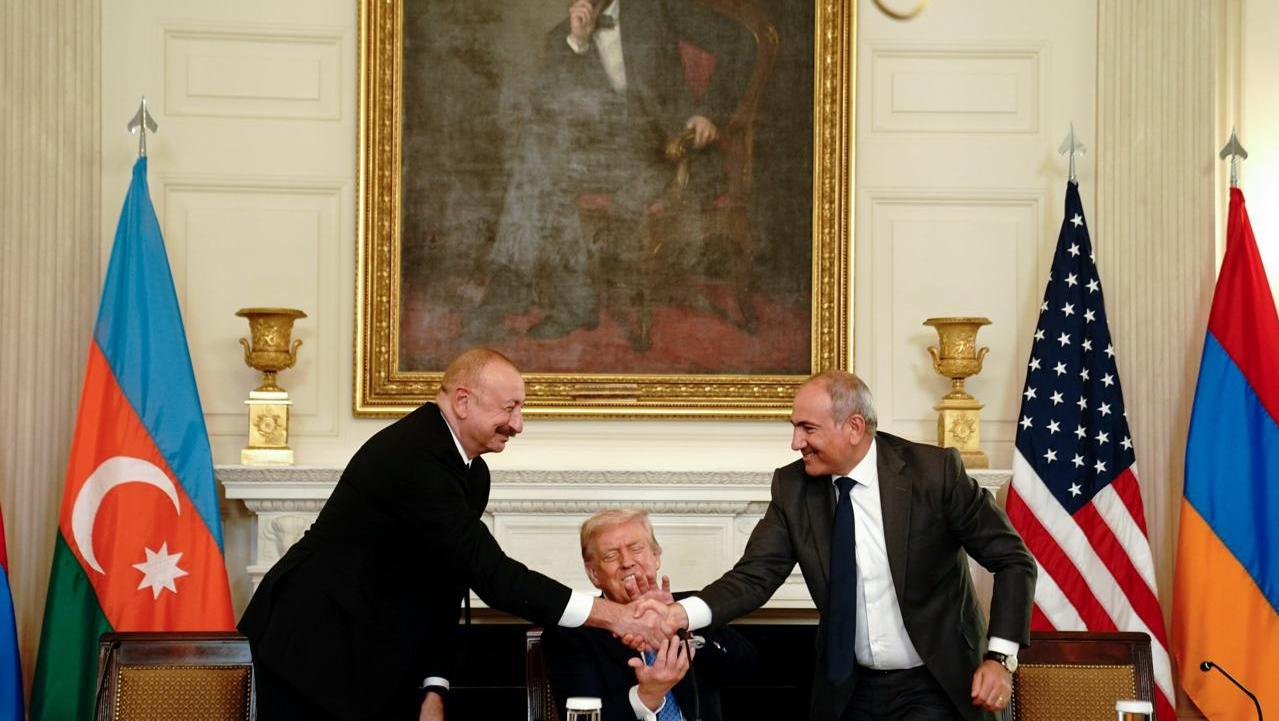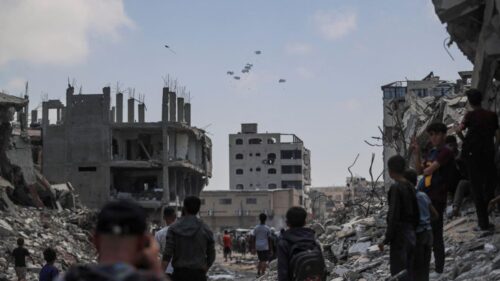
Trump Route may increase tensions in South Caucasus, says ICDS
The so-called “Zangezur Corridor” has been rebranded as “Trump Route for International Peace and Prosperity” (TRIPP). The White House praised the initiative as a way to “unlock the potential of the South Caucasus region” in trade, transit, energy, infrastructure, and technology, while announcing that the US will hold exclusive development rights. Undertaken without sufficient consideration of broader geopolitical repercussions, it risks igniting new conflicts, The International Centre for Defence and Security (ICDS) writes.
While Baku’s “Zangezur Corridor” initiative is regarded as undermining Armenia’s sovereignty, the Trump Route envisages the “respect for the sovereignty, territorial integrity, and jurisdiction of the States.”
Yet the trilateral declaration still promises “unimpeded connectivity” between mainland Azerbaijan and Nakhijevan, leaving Baku room to demand access without Armenian passport and customs controls.
The details of the Trump Route remain unclear, as the US-Armenian memorandum has not been published. Media reports suggest that negotiations will begin following the summit. The project is expected to be managed by an Armenian-American consortium.
For Moscow, the Trump Route eliminates the prospect of deploying FSB border guards along the corridor, as is envisaged in the Russia-brokered 2020 trilateral statement. However, Russia’s response was unexpectedly muted. The Russian foreign ministry reiterated that regional issues should be resolved by the South Caucasus countries themselves with support from their direct neighbours—Russia, Iran, and Turkey—while stressing that the 2020 trilateral agreement remains valid.
Moscow’s restraint may stem from several factors. First, a reluctance to antagonise Trump, whose personal stance toward the war in Ukraine matters more to Russian President Vladimir Putin. Second, Russian border guards continue to patrol the Armenia-Iran border section, although they left the border checkpoint in January. Third, Russia is still hoping to open its Consulate General in Kapan, southern Armenia, which has been discussed for over three years between the two countries’ diplomatic services. Even if the Trump Route rules out Russia’s involvement in the corridor, Moscow will maintain its presence in Armenia’s southernmost Syunik Province.
Iran, by contrast, reacted fiercely. Tehran has opposed the “Zangezur Corridor” for fear of losing its strategically important northern trade route via Armenia. In September 2024, Iranian officials publicly criticised Moscow’s support for Baku’s “Zangezur Corridor”. Tehran, therefore, immediately condemned the Trump Route as well, while the Iranian Foreign Ministry cautiously welcomed the peace process itself. Ali Akbar Velayati, top adviser to Iran’s supreme leader, threatened that the Trump Route would become a “graveyard for Trump’s mercenaries.” Iran opened its Consulate General in Kapan in 2022, with its companies participating in road construction of the Meghri-Kajaran section of the so-called “North-South corridor.”
Despite Pashinyan’s efforts to reassure Putin and Iranian President Masoud Pezeshkian of the Trump Route’s potential benefits for Moscow and Tehran, scepticism persists. If the initiative proves to be just another of Trump’s transactional ventures—akin to his “minerals deal” with Ukraine—undertaken without sufficient consideration of broader geopolitical repercussions, it risks igniting new conflicts involving South Caucasus neighbours.
Trump’s peace deal effectively sidelined Moscow, placing Washington at the centre of geopolitics in the South Caucasus. It may reshape the region’s geopolitical landscape, but it remains uncertain whether this will prove to be a genuine breakthrough or yet another geopolitical conundrum.
Key uncertainties include Azerbaijan’s continued demand for constitutional amendments in Armenia—likely tied to the 2026 parliamentary elections—and the ambiguities surrounding the Trump Route. Iran’s fierce opposition and Moscow’s cautious manoeuvring further underscore the risk of renewed instability.



